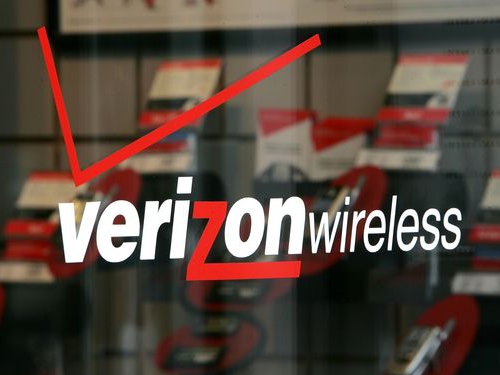Verizon Launching a New Mobile Video Service Too?
Verizon is getting ready to gobble up additional wireless spectrum, and wants to extend the local cable company's TV lineup via 3G/4G so you're no longer locked to Wi-Fi.

Technically, Verizon Wireless already provides a video service to subscribers, coughing up select, recent TV shows piped over a 3G connection. Users can't stream the content via Wi-Fi supposedly at the request of stiff content right owners, forcing users to gobble up precious, costly data. Thus, Verizon's current video service is a gimmick to make consumers pay for more data, whether it's an upgrade or accidental.
Back in February, Verizon Communications announced a joint venture with Redbox parent company Coinstar that will bring a subscription-based multi-platform Netflix competitor to the market in the second half of 2012. Redbox will provide the DVD and Blu-ray rental aspect whereas Verizon will supply the video streaming and download portion. Days later Coinstar said that it also agreed to purchase assets of NCR Corporation's entertainment line of business for up to $100 million. These assets include roughly 9,000 existing Blockbuster kiosks, certain retailer contracts, and DVD inventory.
Now Verizon's streaming video plans are really getting interesting. The Wall Street Journal (paid link, sorry) spoke with Verizon Communications Inc. Chief Executive Lowell C. McAdam who said the company may have a wireless video service up and running by the end of the year. This would allow pay-TV subscribers -- those shelling out bucks to Comcast, Time Warner Cable and others -- to see some of that content on their mobile device outside the home. Currently these cable companies provide streaming video via Wi-Fi connections only.
On Friday McAdam told the paper that the "integrated" service would be available to customers of Verizon Wireless, Verizon's FiOS pay-TV service and its new cable company partners Comcast, Time Warner Cable, Bright House Networks and Cox Communications. "We could have something out that would be the beginnings of an integrated offering in time for the holidays," he said.
McAdam said that Verizon is currently negotiating with content providers, most of which realize that the number of channels and the layout that consumers have within their home may not be appropriate for the mobile environment. Because of this limitation, all parties seem interested in a la carte programing which would allow customers to pick and choose the content they want watch rather than forcing traditional bundles of pay TV channels.
Verizon is currently seeking FCC approval for about $3.6 billion in spectrum licenses that must be approved by the agency. Back in December 2011, the company revealed its plan to purchase 122 Advanced Wireless Systems (AWS) spectrum licenses covering 259 million POPs from SpectrumCo, LLC, a joint venture between Comcast Corporation, Time Warner Cable, and Bright House Networks.
"The companies also announced that they have entered into several agreements, providing for the sale of various products and services," Verizon stated. "Through these agreements, the cable companies, on the one hand, and Verizon Wireless, on the other, will become agents to sell one another’s products and, over time, the cable companies will have the option of selling Verizon Wireless’ service on a wholesale basis. Additionally, the cable companies and Verizon Wireless have formed an innovation technology joint venture for the development of technology to better integrate wireline and wireless products and services."
Sign up to get the BEST of Tom's Guide direct to your inbox.
Get instant access to breaking news, the hottest reviews, great deals and helpful tips.
Is this mobile TV service related to Verizon's joint venture with Redbox? It's unclear at this point, but highly possible they will be separate. Based on the report, Verizon will offer a wireless extension of a specific cable company within its territory, providing semi-live TV on the go. The deal with Redbox could be a separate, "rental" service aimed at delivering movies and past seasons of TV shows via 3G/4G and physical media. That, of course, is mere speculation.
Kevin started taking PCs apart in the 90s when Quake was on the way and his PC lacked the required components. Since then, he’s loved all things PC-related and cool gadgets ranging from the New Nintendo 3DS to Android tablets. He is currently a contributor at Digital Trends, writing about everything from computers to how-to content on Windows and Macs to reviews of the latest laptops from HP, Dell, Lenovo, and more.
-
caparc What percent of the bandwidth for this page is the text content I wanted to read and what percent is advertising? If I have a verizon data plan what percent of my measly 2 GB per month might be consumed by advertising? Somebody should study that and report the results. What if advertising is most of the bandwidth data plan customers are paying for. For unlimited customers it doesn't matter. Is there ad blocker software for smart phones to save bandwidth? Perhaps Verizon should do the ad blocking to better manage it's wireless capacity.Reply
I accept imbedded advertising for the sake of free content, so long as it doesn't slow page boots too much and/or cost me money. Nobody should have to pay for unsolicited advertising. -
fb39ca4 hooray now i can hit my data cap even faster than before! this makes me sooo happy! i cant wait!!!Reply -
caparc I think there will eventually be a consumer rebellion against the current capped data plans. Call it bandwidth burnout.Reply
2000 MB / 30 days = 65 mb per day. How many minutes of youtube videos does it take to use that up? And how much of that is ads? Okay, no youtube on the go. Even with good filtering most of my emails are spam so I'm paying Verison yet again to receive unsolicited advertising. The bandwidth for this Toms page is 95% advertising. The article text above is a few kb.
I"ve always felt mobile data makes a lot of sense for business uses but is nothing but a bad habit for consumers until the bandwidth is less expensive and/or metered in a more enlightened way.
For instance 24GB per year would be a lot more valuable to me than 2GB per month. What you ask is wrong with that? A yearly usage would make it much harder for Verizon to pick the consumer's pocket. -
hythos My phone (Storm1) has ALWAYS said "1XEV". VZ says this is "3G", but I'm skeptical.Reply
I have an older "ulimitted data" account (most likely throttled, but I don't know how to verify it....)
